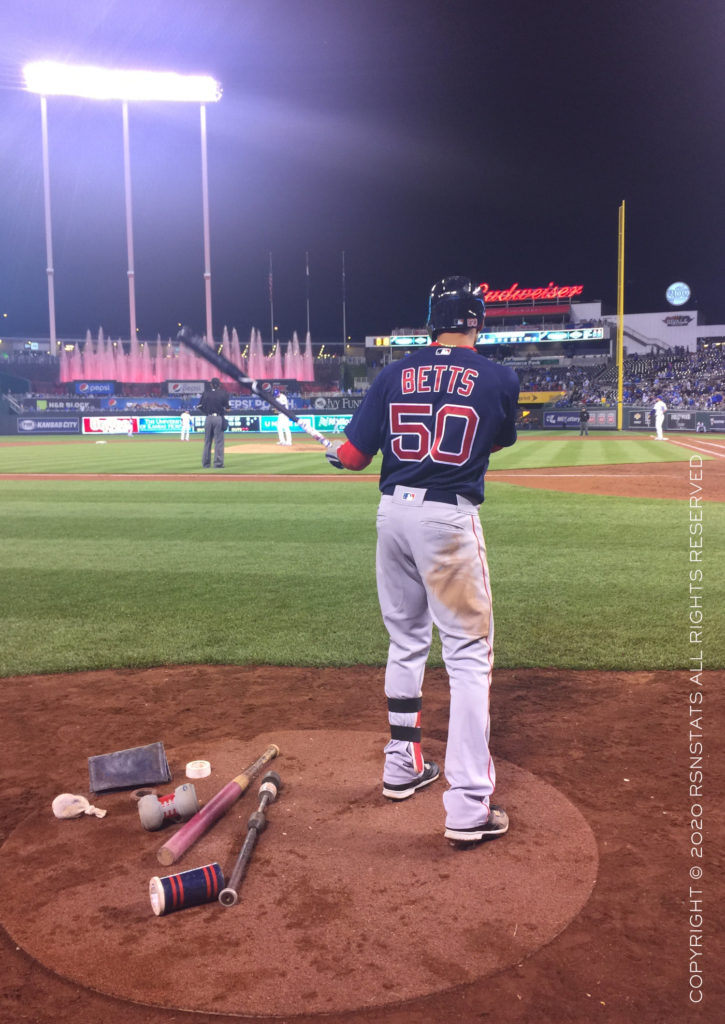The long-anticipated report from Major League Baseball on the possibility of illicit sign stealing by the world champion 2018 Red Sox turned out to be largely exculpatory. The results of the investigation, issued Wednesday by baseball Commissioner Rob Manfred, focused in on the role of Boston’s video replay system operator, J.T. Watkins, who was suspended without pay for 2020 for his actions.
The report found that Watkins “on at least some occasions during the 2018 regular season” violated MLB rules by using a video feed to gain an unfair advantage over Red Sox opponents. But the report also found no evidence that then-Manager Alex Cora, the coaches, front office, “or most of the players” knew, or should have known, what Watkins was up to.
As a result, no additional discipline was meted out, there were no fines charged to the club, nor were there any additional sanctions handed down to Cora, who is already suspended for this season owing to his involvement in the 2017 Astros cheating scandal. The Commissioner did, however, dock the Red Sox a second round selection in the 2020 First-Year Player Draft.
The Commissioner’s Office and the Players Union had agreed from the start that, in return for their honest cooperation during their interviews, current and former Red Sox players would not be subject to discipline based on the results of the investigation. But even with that, Manfred said “this is not a case in which I would have otherwise considered imposing discipline on players.”
Manfred says players were either unaware of Watkins actions or did not have direct evidence he was involved in anything illicit. Indeed, Manfred notes that “the prohibition on utilizing the replay room to decode signs was not effectively communicated to Red Sox players.”
Beginning in 2018 MLB placed its own staff to monitor use of the Replay Room during postseason games. The Commissioner therefore concluded that any illicit efforts by Watkins would not have affected the run up to the team’s 2018 World Series win.
How It Worked
According to the report, Watkins supplemented his pre-game work decoding opponent signs with new information gleaned from live video during the game. Under the rules, historical research into an opponent’s signs is permissible, but using the video room to decode signs during the game is not. MLB Rule 1-1.A states that “Under no circumstance may electronic equipment or devices be used for the purpose of stealing signs or conveying other information designed to give a Club a competitive advantage.”
Watkins, 30, is a former minor leaguer catcher in the Boston system who was drafted out of the US Military Academy at West Point in 2012. He appeared in 87 games at the Single-A level and retired from playing in 2016. He joined Boston’s major league staff the next year.
Part of Watkins’ job with the Sox was to decode an opposing team’s signs prior to and after the completion of a game and then brief the team before future games against that opponent. The other part of his job was in the Replay Room during the game to advise the team manager on whether to challenge a call on the field. The report says Watkins “admitted that because he watched the game feeds during the entire game, he was able to determine during the game when the sign sequences he provided to players prior to the game were wrong,” though he “vehemently denies utilizing the replay system during the game to decode signs.”
Watkins also admitted he passed notes to players during the game, but that they contained information based on his pregame advance work or observations provided to him by players during the game. Though he says he tried to conceal any in-game communications with players, such conduct was entirely innocuous.
A “Difficult Position”
Most of the Red Sox players interviewed by the MLB Department of Investigation said they had no knowledge regarding whether Watkins used in-game video feeds to revise his advance sign decoding work. But at least some suspected that he had revised his earlier advice with illicit in-game knowledge.
Regardless of what Watkins may have done, the report concludes that players, managers, coaches and other staff would have no credible reason to believe Watkins was was using illicit means to gain new insights for them. Even those who may have suspected him, Manfred says, had no direct evidence but based suspicions on inferences drawn from the way the information was communicated during the game.
While the Commissioner acknowledges that Watkins’ dual roles of doing advance work and being an in-game video replay operator put him “in the difficult position of often knowing what the correct sequences were but being prohibited by rule from assisting the players by providing the correct information,” it “does not excuse or justify his conduct.”
Watkins caught up in Apple Watch Fiasco
Not helping Watkins cause, no doubt, was his previous involvement in the 2017 “Apple Watch” embarrassment, in which the Sox were fined for sending electronic communications from the video replay room to an athletic trainer in the dugout.
In Wednesday’s report, the Commissioner called Watkins a “key participant” in that earlier case and that Watkins “acknowledged to my investigators that he knew that his text messages violated MLB’s rules at the time, but he sent them anyway.”
Nothing Like 2017 Astros
In the report, Commissioner Manfred draws a clear distinction between what happened with the 2018 Red Sox and the cheating scandal of the 2017 Astros.
In Houston, players communicated to the batter in real time the precise type of pitch about to be thrown. But in Boston, Watkins’ information was only relevant in circumstances when the Red Sox had a runner on second base. What’s more, the report notes, “even when Watkins utilized in-game video to revise his advance work, the information was only useful if the opposing team did not again change its sequence after Watkins passed along the information to players, and, only then, if the Red Sox baserunner was able to recognize the sequence provided by Watkins and also inform the batter through a gesture that was understood correctly by the batter.”
Red Sox Apologize
The Red Sox acknowledged report and apologized to fans and the league with a statement from Jersey Street headquarters:
“As an organization, we strive for 100% compliance with the rules. MLB’s investigation concluded that in isolated instances during the 2018 regular season, sign sequences were decoded through the use of live game video rather than through permissible means.
“MLB acknowledged the front office’s extensive efforts to communicate and enforce the rules and concluded that Alex Cora, the coaching staff, and most of the players did not engage in, nor were they aware of, any violations. Regardless, these rule violations are unacceptable. We apologize to our fans and Major League Baseball, and accept the Commissioner’s ruling.
Sam Kennedy
President & CEO, Boston Red SoxCora “Relieved”
On Wednesday evening former Sox manager Cora issued a statement through his agent saying he was relieved that the Commissioner’s report exonerated him.
While acknowledging and taking “full responsibility” for his role in the 2017 Astros cheating scandal, Cora thanked family, friends, and the Red Sox organization for their support during this investigation.
“I am relieved that these MLB investigations are concluded,” Cora said, “and that Commissioner Manfred has released his finding that I did not violate any MLB rules as a member of the Boston Red Sox in 2018 or 2019.”





